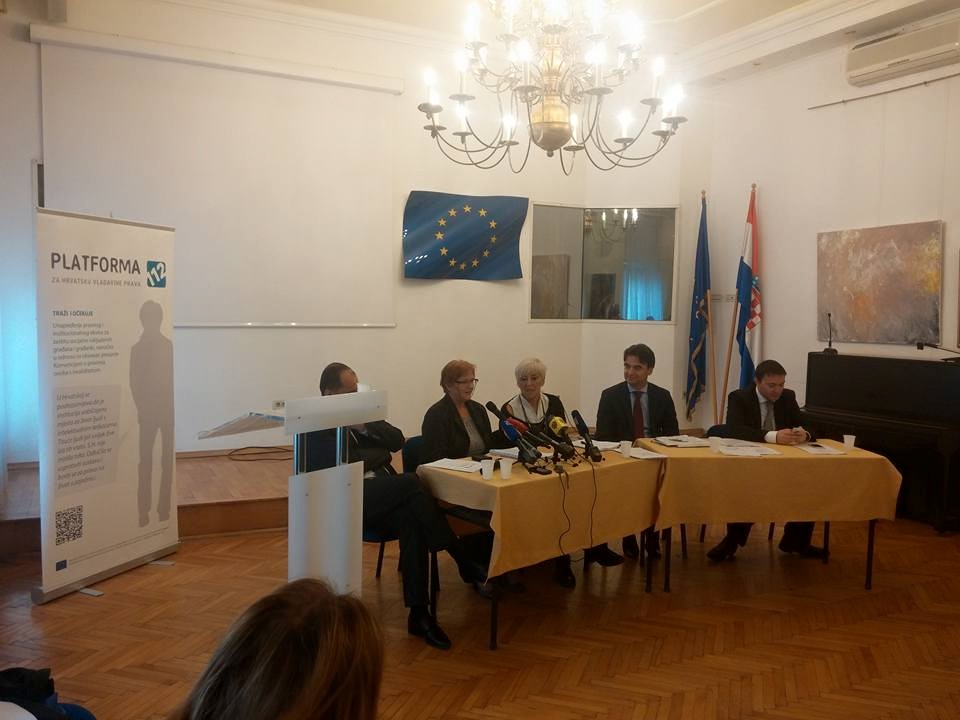On the eve of the last year of the current Croatian Government’s term, the civil society watchdog coalition Platform 112 expresses concern and regrets regarding missed opportunities that have led to a decreasing number of people who truly exercise their rights, as well as a further loss of citizens’ trust. Instead of turning away from the kleptocratic legacy of the Croatian Democratic Union, towards more democracy and a way out of the economic crisis, the Government has opted for a status quo with respect to rule of law, quality of democracy, protection of human rights, public goods and dealing with the war.
We are aware that this assessment of the Government’s reform capacities with respect to the Platform 112’s policy requests is being published in an ambient of political polarisation, where war traumas are being recycled for the benefit of political manipulations, while the conservative right spurs fears and passion, searching for culprits among the Others. In such a context, we are faced with the compelling fact that none of our 112 requests have been fully realised, while significant positive shifts are visible in respect to only 16 of them, making up a saddening total of 14 per cent.
The heart of the problem lies in the lack of competencies related to leadership and strategic management in particular. Obviously, the current holders of public office came to power unprepared even for those reforms inherited from the EU negotiations, which they strongly advocated for while in the opposition, as well as in their pre-election Plan 21. Abandoning their own political objectives was not accompanied by taking responsibility, especially in the case of the Prime Minister, but also other public officials, who implicitly and informally used lack of authorization from the top as an excuse for their inaction.
We are convinced that the root cause of the economic and the growing social crisis – evident in increasingly deeper conflicts of worldviews and intolerance – is fundamentally political. Despite declared principles of openness and improvements in individual policy areas, our comprehensive analysis has shown that the role of citizens and organised civil society is still being ignored, especially when politically sensitive issues are at stake.
Deeply aware of these circumstances, we shall not give up and shall not accept this long-term downward trajectory into the abyss as a situation with no alternatives. The Croatian state and society have to find a way out of the economic crisis, the impoverishment of an increasing number of citizens, the deterioration of fundamental values of democracy and rule of law – in short, a way out of hopelessness that immobilizes us and pulls us backwards. It is necessary to put an end to the struggle for political power for the sake of power, , as well as manipulation in the name of ideologies that, oftentimes, not even their proponents believe in. It is necessary to stop with yelling and threatening, name-calling and agitating. Instead of lynching those who think differently, we propose and seek dialogue. A turn towards the inclusion of all those interested in common action for solidarity, tolerance and creativity is possible. We need to sit down and engage in dialogue.
Assessment of the Reform Capacities of the Croatian Government, 2011 –2014
